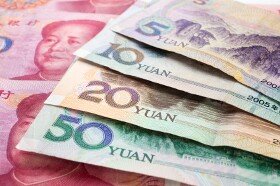The Chinese yuan is still trading lower on Friday, despite reports that the US Treasury Department will not label the worldâs second-largest economy a âcurrency manipulator.â The positive news was offset by an International Monetary Fund (IMF) forecast that lowers the nationâs economic growth over the next two years amid the US-China trade spat.
For months, the US government has said that it is working with other G7 nations to closely monitor the Chinese yuanâs performance. While some, including President Donald Trump, have suggested that Beijing is manipulating the yuan, others contend that the yuanâs recent descent has been because of sluggish economic growth and the trade dispute. Also, prior to the recent collapse, the yuan had been appreciating.
After further analysis, an internal Treasury report will be submitted to Secretary Steven Mnuchin on Monday. According to Politico, the report is expected to encourage Mnuchin that he should not name China on a list of currency manipulators. However, it does recommend that China should be added to a monitoring list.
It should be noted that the yuan is Asiaâs worst performing currency in 2018.
The Institute of International Finance (IIF) does not believe the Peopleâs Bank of China (PBOC) is fiddling with the currencyâs exchange rate. Speaking in an interview with CNBC at the IIF Annual Membership Meeting in Bali, Indonesia, CEO and president Tim Adams argued the trade war will have a greater impact on monetary policy.
In fact, weâre back to where we were in 2016. Look, their economy is weakening, theyâre running a more accommodative monetary policy, they have a flexible exchange rate, you would expect their currency to weaken. I suspect they wonât be found a manipulator. I donât think they are manipulating the exchange rate.
The yuan might tumble even further on a weakening economy. The IMF warned that China could see annual growth weaken to just under 2% in 2019 and 2020. It might be counterintuitive, but the IMF notes that investor confidence and rattled financial markets are affecting the economy more than the tariff spat.
Changyong Rhee, director of the IMFâs Asia and Pacific Department, stated:
This is one of the reasons why we feel that headwinds may last longer. I donât know what will be the end … I think the lessons we have taken is how much the global financial markets and real economy are well integrated, no one can be free from such shocks.
In the end, there will be no winner from the global trade war.
The USD/CNY currency pair rose 0.39% to 6.9168, from an opening of 6.8899, at 14:58 GMT on Friday. The EUR/CNY dipped 0.04% to 7.9837, from an opening of 7.9871.
If you have any questions, comments or opinions regarding the Chinese Yuan,
feel free to post them using the commentary form below.



Be First to Comment